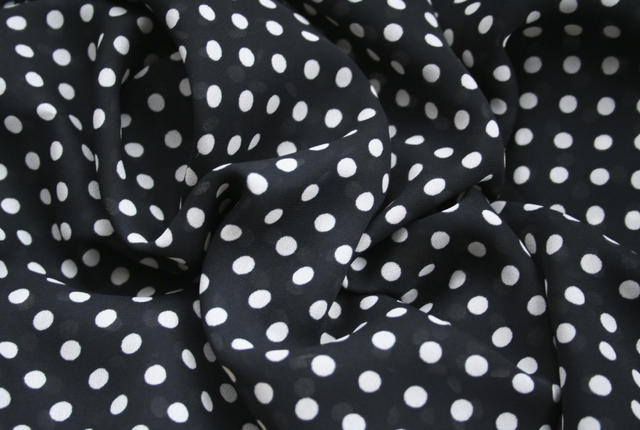Why are Polka dots called Polka dots? Polka dot origin explained
Polka dots – probably best known today as gracing the bodies of pin-up models and Minnie Mouse, actually have quite the storied past. Where did they come from, and where do they get their musically inclined name?

Polka Dot origin
Polka dots have been around since at least the mid-1800s, although they weren’t always called polka dots. Popular in the fabrics of Northern European dresses, the earliest known instances of polka dots were called “thalertupfen” in Germany; the name comes from the small dots being roughly the same size as a “thaler”, a coin. During this same time period, Europe was experiencing the first wave of polka-frenzy, as Czech music flooded the continent with high-energy, dance-ready tunes. In the 1860s, polka made its way across the Atlantic to reach the New World.
Why are Polka dots called Polka dots?
It’s this uncanny timing more than anything else that gives polka dots their name. With both the pattern and the music being all the rage, it seems rather too easy to say that polka dots were named after the polka simply because people really liked them both at the same time; yet, this is exactly the explanation provided by most modern historians. Still, there is some evidence that enthusiastic members of polka halls of the period actively wore polka dots in their garments to show their love for the genre.
Polka dots have yet to lose their style and the history of polka dots is still being written. The only hiccup for the polka dot, it seems, maybe a rather embarrassing incident involving a Batman villain named “Mr. Polka Dot”, of whom very little should be said.
As for the polka, it may have passed its prime but it’s still a beloved part of Northern European culture. For the curious, “polka” is a Polish term for “Polish Woman”, though it’s likely the name is a variant of “pulka”, which is Czech for “half-step”.
